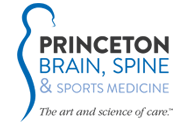Neuralgia
Neuralgias & Facial Pain
Pain from Cranial Nerve Compression
Neuralgia refers to a variety of vascular compression syndromes that cause nerve dysfunction and result in sharp, shooting pain radiating along the length of the affected nerve. This pain may be steady or intermittent and usually is limited to one area of the body. Neuralgia is often misdiagnosed as a dental problem, resulting in years of ineffective treatment and continued episodes of pain for the patient. The experienced neurosurgeons at Princeton Brain, Spine & Sports Medicine can help patients achieve relief or long-term management of neuralgic pain.
Three Types of Neuralgia
- Glossopharyngeal Neuralgia. This rare neuralgic disorder is characterized by recurring episodes of severe pain in the tongue, tonsil, ear and throat areas. It is caused by irritation of the ninth cranial nerve and may be triggered by movements such as speaking coughing, chewing or swallowing.
- Trigeminal Neuralgia. Patients with this chronic neuralgia experience recurring extreme pain that feels like an electric shock. The pain is caused by irritation of the fifth cranial nerve and is associated with the aging process or chronic conditions like multiple sclerosis that damage the nerve’s myelin sheath/protective coating. PBSSM’s Dr. Mark McLaughlin, MD specializes in advanced treatment of trigeminal neuralgia.
- Occipital Neuralgia. With sudden, throbbing, electric-shock-like headache pain, this form of neuralgia results from irritation of the occipital nerves that pierce the muscles of the neck. It may be precipitated by whiplash, localized trauma, infection or chronic positioning of the head in a downward or forward direction.
Turn to Princeton Brain, Spine & Sports Medicine for Relief of Neuralgia
Consult the neurosurgeons of PBSSM for accurate diagnosis of headache, neck and facial pain. We are a patient-centered medical practice that makes your health our priority, and we’re honored to provide you with exceptional care. Schedule a diagnostic exam by phone at 215.741.3141 in PA or 609.921.9001 in NJ—or contact us online.
Request an Appointment
Submit an appointment request on our patient portal or contact our New Jersey and Pennsylvania campuses to speak with a patient advocate.
